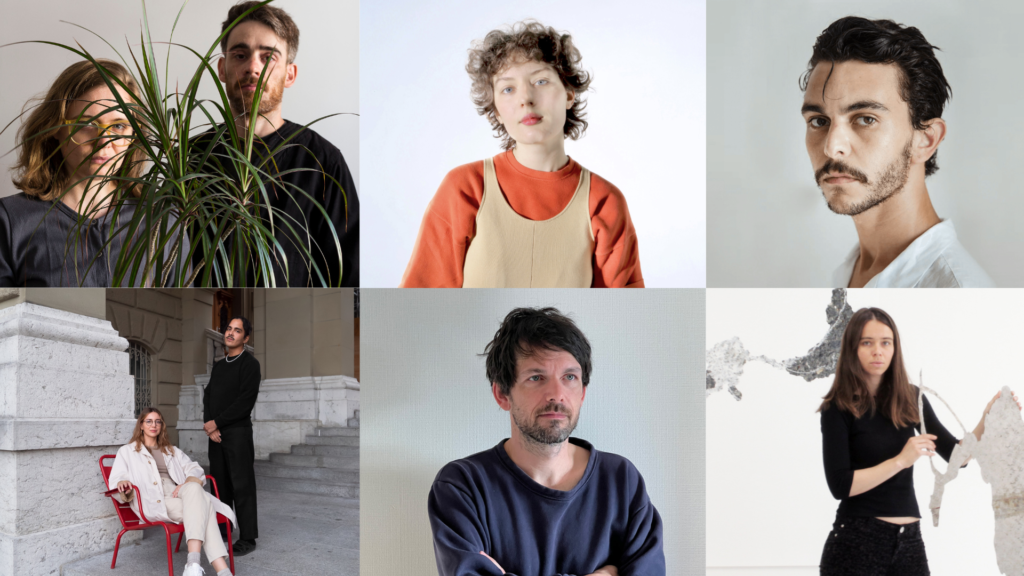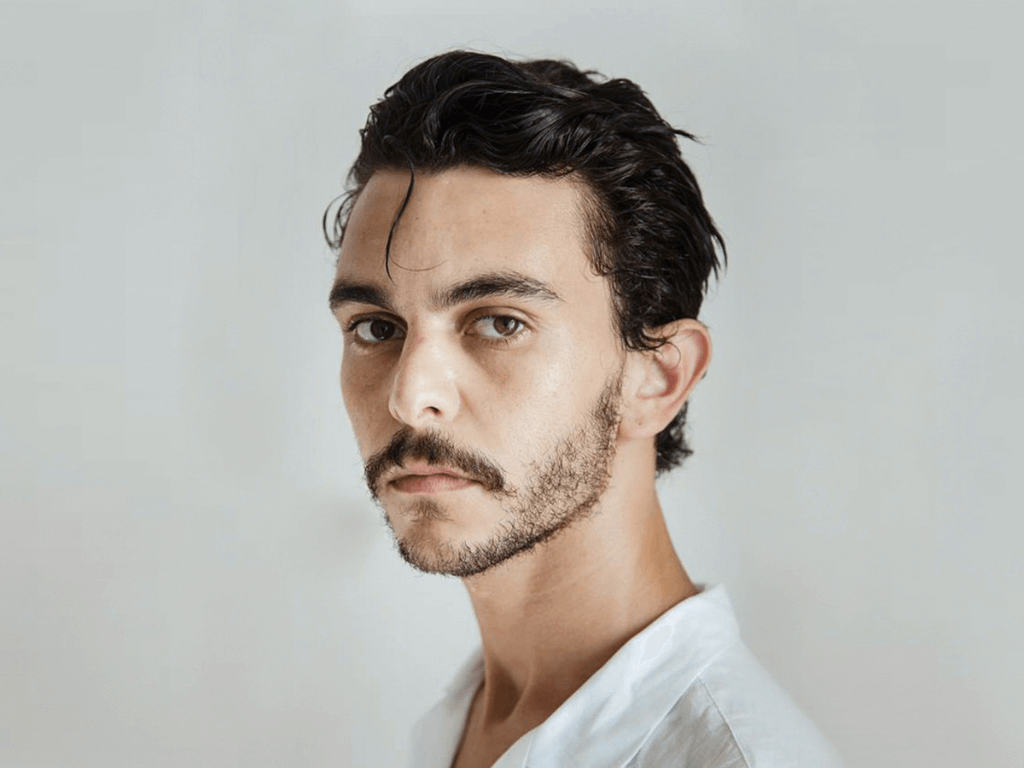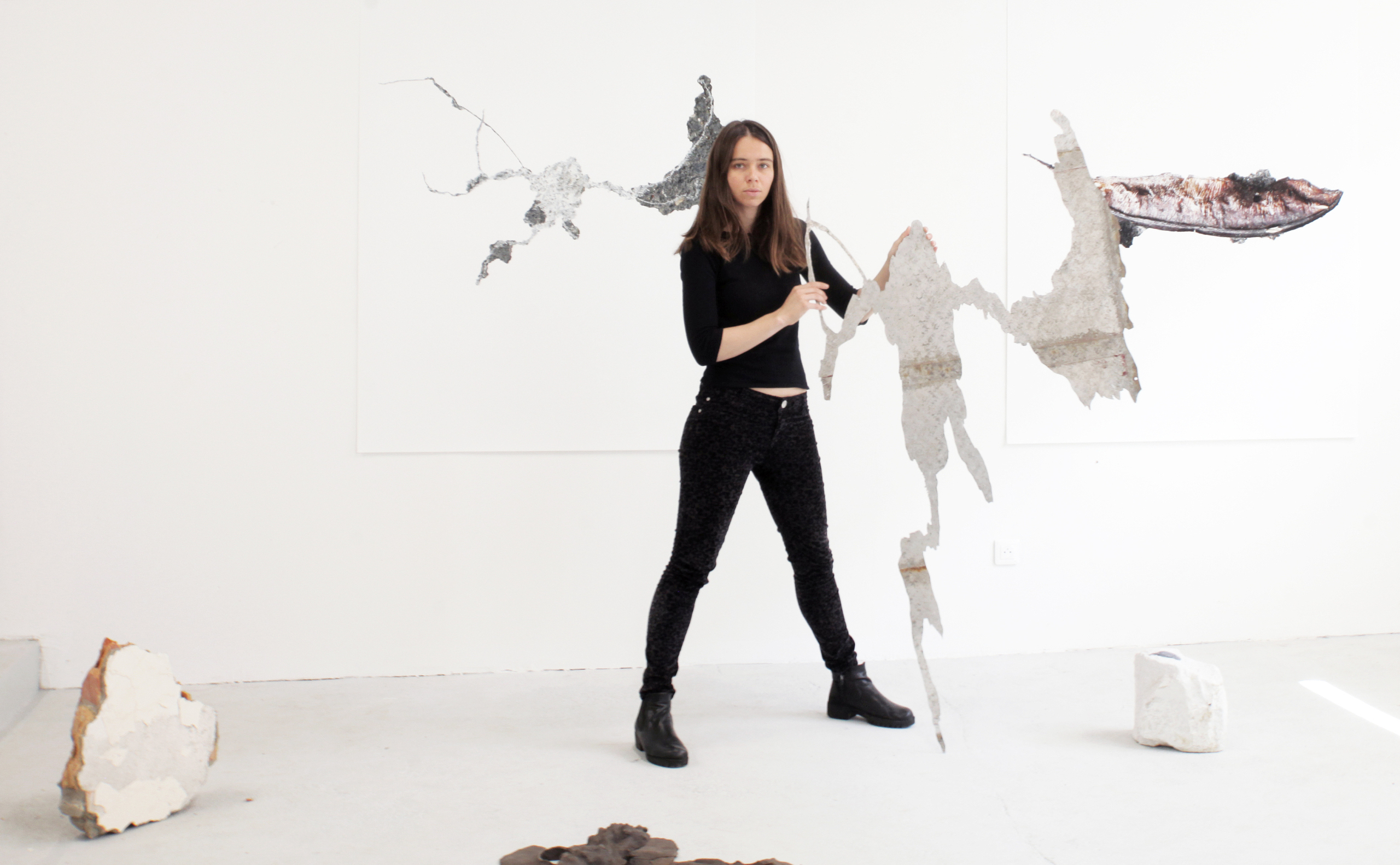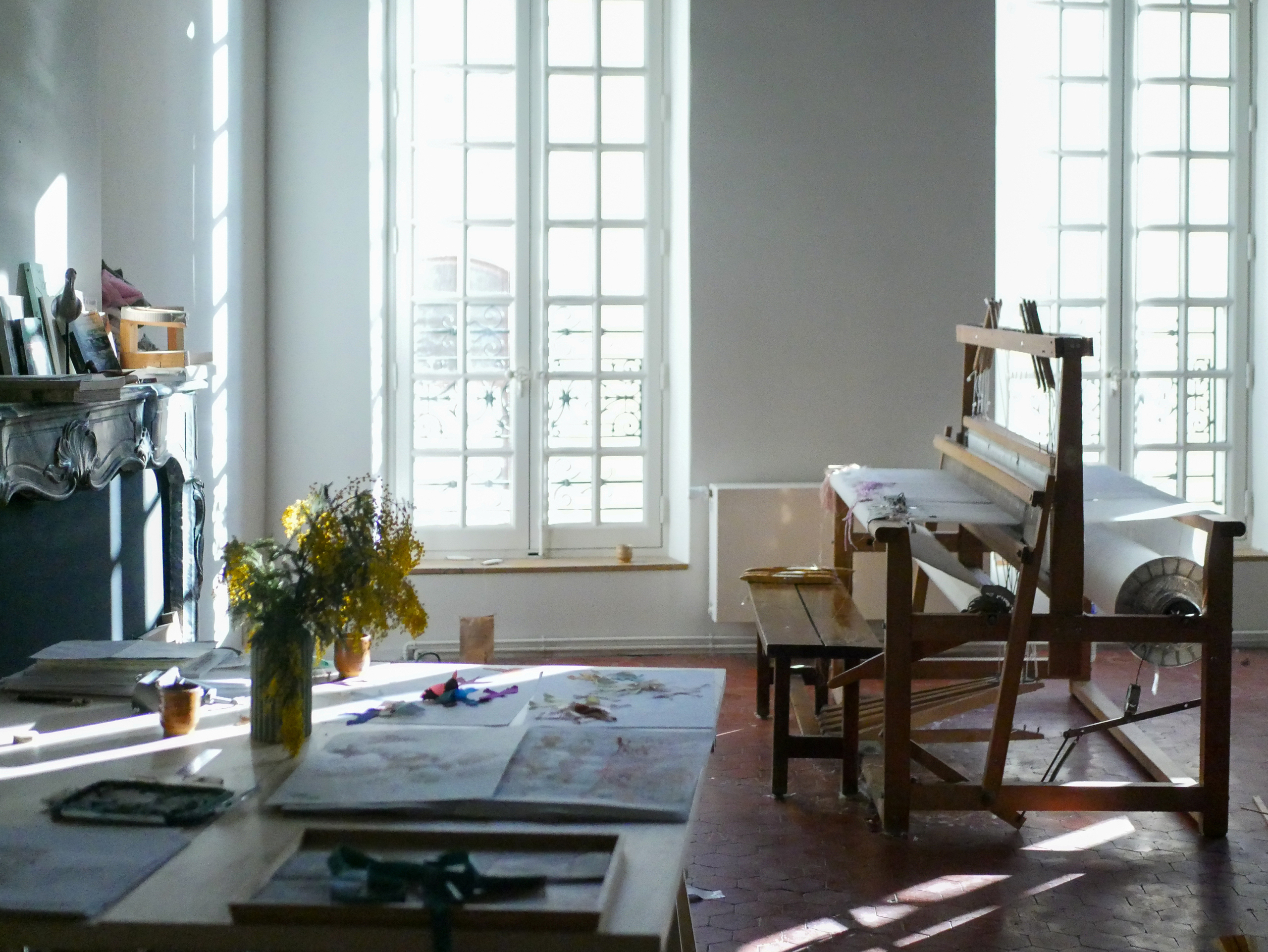
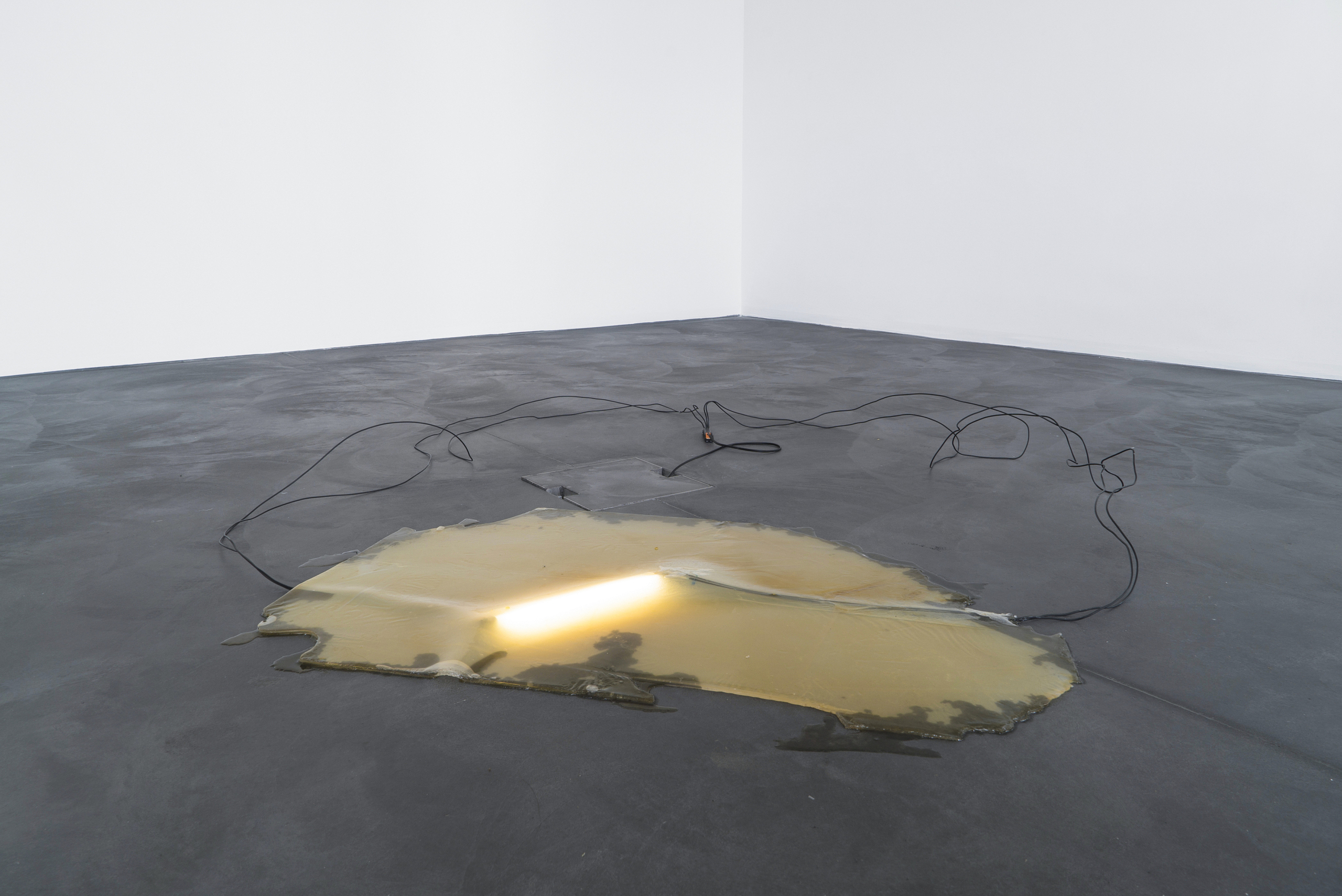
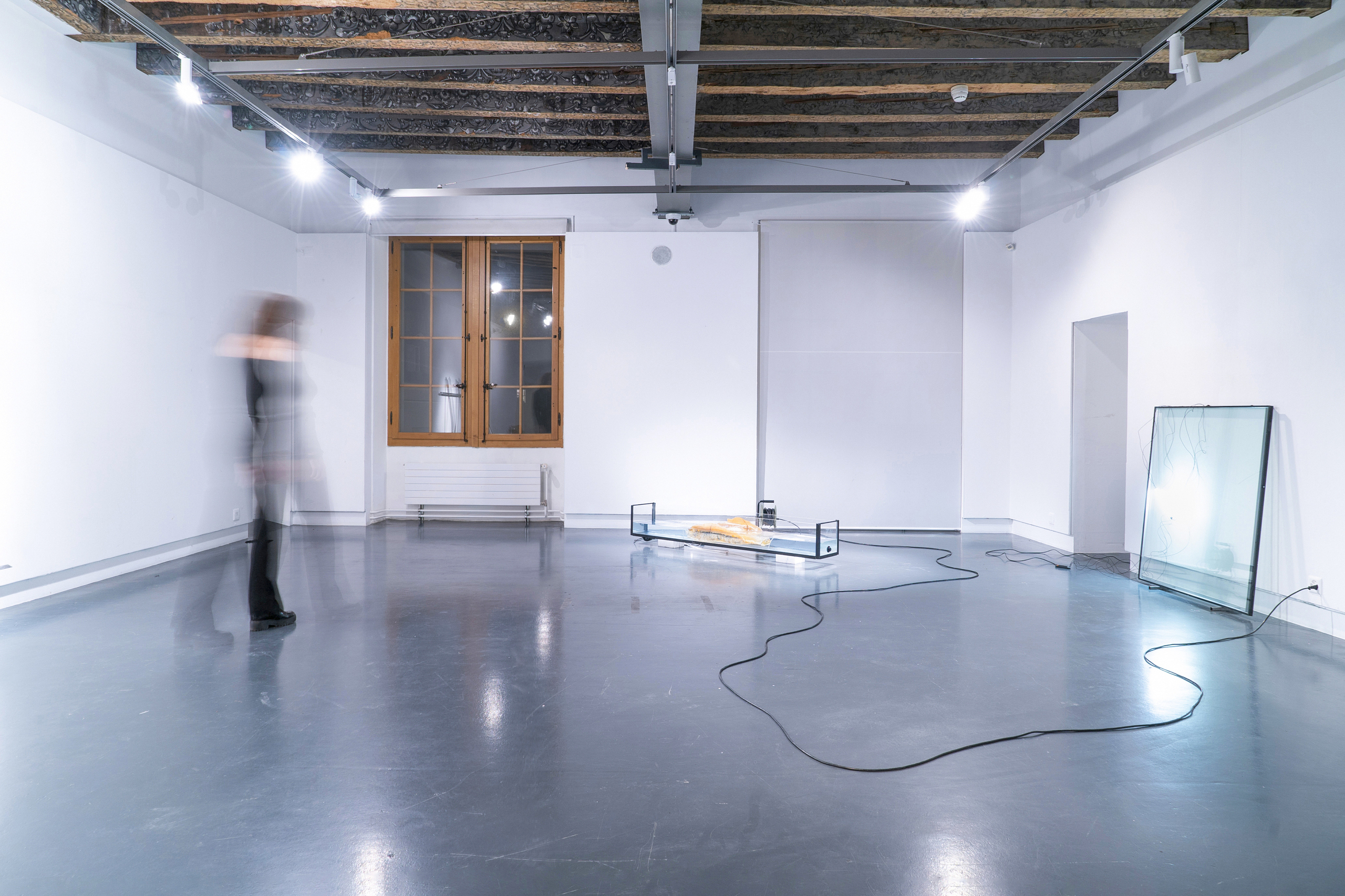
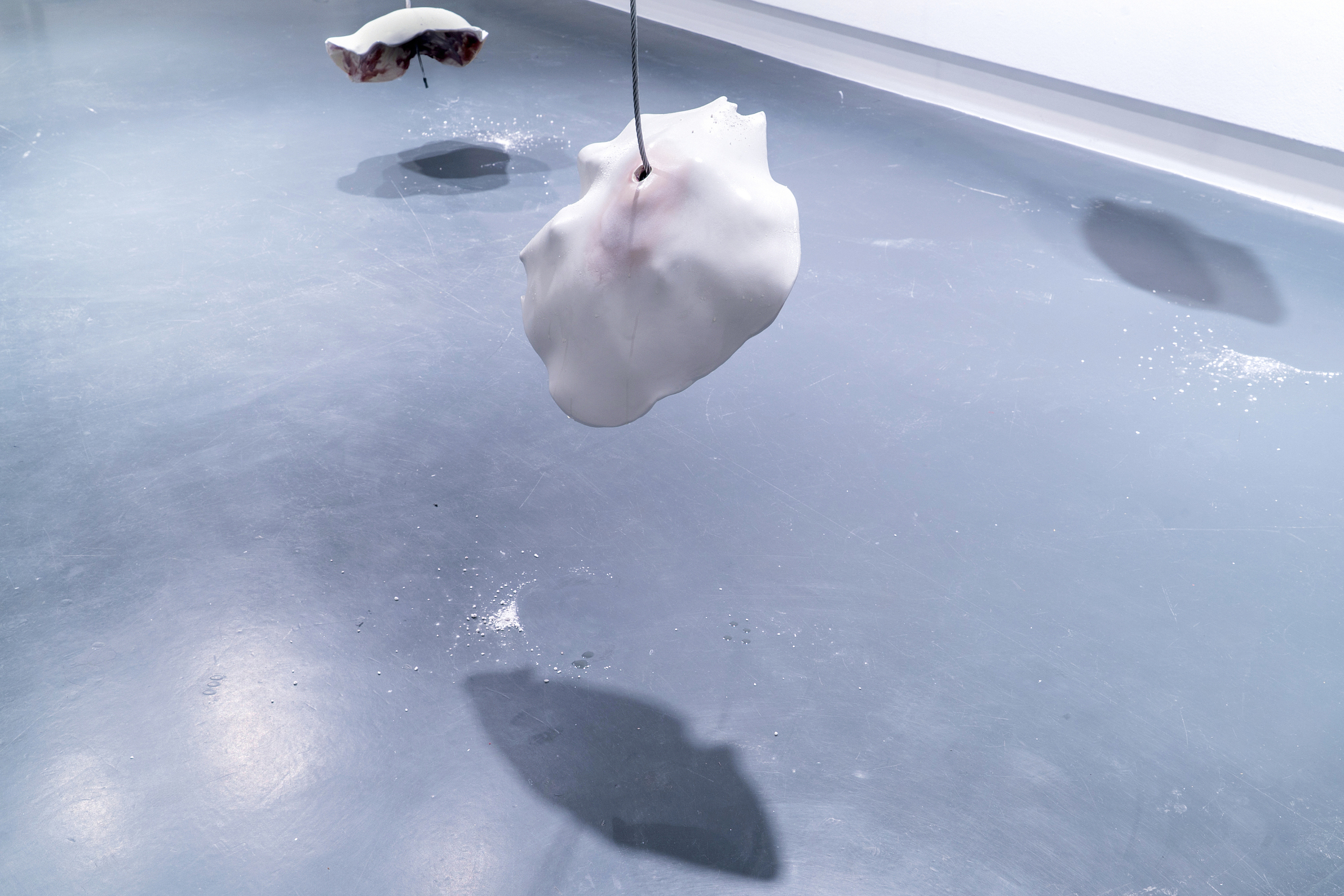
Research residency
Jasmine BAUME & Byron GAGO
Visual arts & creative writings
Byron Gago is an artist who was born in Ecuador. His works, with their stripped-down, even ascetic aesthetic, are visualisations of his research into specific territories and “cases”. Their cold, technological dimension and their anonymous, authoritarian design evoke the notion of a laboratory. This is set off against the subjects he deals with, mixing geopolitics, ecology, and body politics, all in the form of a speculative gesture. In 2020, he created Synthetic Amazonia, which recreated in vitro the climate of Ecuador’s Amazonian rainforest. The visual system implemented by the artist, between an industrial research centre and a science fiction setting, reveals – at the same time that, in a certain sense, it neutralises – the topic being analysed and taken apart to be put into perspective and critiqued: the human capacity to manipulate landscapes, the brutal control of territories, movements, and bodies through these extractive forces, and the alliance between the sciences, the economy, and politics that heightens the exploitation of living things. His work, as in 00.0619, an installation that explores an area of southwestern Sardinia, at times dives beneath the surface of the image, of the visible, and of the representable to work with the visible and invisible materialities of the elements that make up a given territory.
Jasmine Baume is a legal expert. In the last several years, she has become interested in ecological issues involving water – the politics of accessing and treating water, and the struggle against drought and pollution – and how these issues are discussed in contemporary political discourse. In Brussels, Jasmine and Byron partnered to develop a project at the intersection of art and the law, research and activism. After visiting the European Parliament and watching hundreds of hours of negotiations, the artist and the legal expert decided to focus their inquiry on the decision-making process, highlighting the discrepancy between discourse at the political level and the people’s needs, experiences, and demands. Their work pays particular attention to performativeness, body language, the writing of texts, and the role of emotion in parliamentary debates. The result is a series of textual and visual productions: a video documenting the architectural system of the Parliament as a power structure, an empty and disembodied arena, symbolically encircling it with what goes on beneath (the basements of Brussels and the underground circulation and treatment of water) and around it, interviewing the activists who routinely demonstrate outside the Parliament to demand that climate justice be applied.
A text and a performance titled The Recipe translate these questions into a form of ecological manifesto that subverts the codes of political argument. A journal, texts, and a bibliography have also been compiled for an online platform that serves as a catalyst for all the research materials.
The Water Case by Jasmine Baume and Byron Gago can be viewed at thewatercase.com.
_____
Jasmine Baume (1997) obtained a Bachelor and a Master of Law at the University of Neuchâtel in 2018. She then studied between the KU Leuven and Neuchâtel to obtain a Master of Law. Jasmine has been a scientific collaborator in an ONG and is a legal intern at the Swiss Competition authorities since March 2022.
Byron Gago (1994) is a visual artist and researcher born in Ecuador in 1994, He completed his Bachelor’s degree in Milan at NABA with an editorial project which focuses on the current condition in the territories of the Amazon rainforest in Ecuador and in 2020 he concludes his Master at ECAL in Lausanne.
Yann Chateigné Tytelman, guest curator for the 2024 residency, will be guided laureates over of working sessions.


